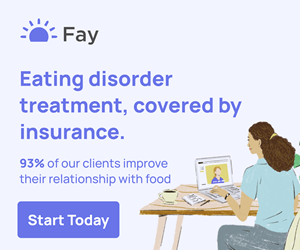- Calls to this hotline are currently being directed to Within Health, Fay or Eating Disorder Solutions
- Representatives are standing by 24/7 to help answer your questions
- All calls are confidential and HIPAA compliant
- There is no obligation or cost to call
- Eating Disorder Hope does not receive any commissions or fees dependent upon which provider you select
- Additional treatment providers are located on our directory or samhsa.gov
Long-Term and Short-Term Consequences of Anorexia
Anorexia nervosa (AN) is among the most dangerous types of eating disorders, and it can lead to a number of severe health consequences in both the short-term and the long-term if left untreated.
While some of the symptoms of AN, such as drastic weight loss, may be easier to spot, the health consequences of anorexia nervosa may be more difficult to see. Thinning bones, heart disease, and neurological issues are just some of the health risks of anorexia nervosa that can fly under the radar.7
Still, many of these medical complications are not permanent. Once a patient starts on the road to recovery and begins working on their mental health, their physical health tends to follow, with the body starting to heal itself once severe anorexia symptoms are under control.8
Yet, some internal damage caused by this illness may continue even after recovery. That’s why it’s important to seek help as soon as possible to give your body the best chance to heal.
Advertisement
The short-term health effects of anorexia nervosa begin almost immediately.
Once someone starts regularly restricting their diet, their body will adjust to the change, going into “starvation mode.” Broadly, this can be considered a biological contingency plan, during which time the body redirects vital materials to continue functioning.9
Starved for nutrients and energy, the body will begin to look for these essential ingredients in other sources. This could mean breaking down muscle mass, siphoning nutrients out of bones, or redirecting energy or nutrients from other processes to fuel the essential centers of the brain, heart, and lungs.9
To aid this shift, the brain releases a cascade of hormones, which could negatively affect the body, organs, and internal functions. After a sustained time in this state, the issues caused by this hormonal influx can become chronic.9
Some of the first short-term effects of these changes include:
- Digestive upset
- Weight loss
- Hair loss (and growth)
- Loss of menstrual periods
- Inability to get warm
- Anemia

Weight Loss
Severe weight loss is a common sign of AN and the most visible effect of anorexia nervosa. Indeed, a refusal to gain weight is often at the heart of this mental illness.
While experts say weight loss of even 5% of body weight could be significant if paired with mental health issues, many people with AN lose much more than that.1
A body weight that’s 85% or less of what is considered normal for a person, based on their age, height, and other factors, is generally considered to be criteria for AN diagnosis.10
Hair Loss (& Growth)
There are several reasons why people with AN may see changes in their hair over the short term.
Hair is primarily composed of protein, a vital building block used for many bodily functions. When the body goes into starvation mode, it will likely stop sending protein to these areas and redirect it to more vital functions.
Yet, almost paradoxically, severe anorexia nervosa can also lead to hair growth.11
Many people struggling with this condition notice fine hair, called lanugo, growing all over their bodies. Continued weight loss leaves someone vulnerable to hypothermia, and, in response, the body may grow more hair in an attempt to stay warm.11
Loss of Menstrual Periods
The endocrine system is responsible for creating and distributing the hormones that dictate the countless chemical processes in the body and brain.
The system is extremely delicate, relying on a complex interplay of brain signals, fat stores, and stress triggers to operate. Thanks to the body’s adjustments to a severely limited diet, it is often damaged or otherwise thrown off in the early stages of AN.
For people with uteruses, one of the most important functions of the endocrine system is regulating the menstrual cycle. When this system is not functioning correctly, it’s very common for someone to lose their menstrual cycle completely.12
The body may also pick up on other signals, such as a low level of body fat, which tells it that it is not a good time to conceive. In response, it may direct resources away from menstrual cycle maintenance.12
Inability to Get Warm
Low levels of body fat can lead to other issues and short-term effects of AN.13
Without an insulating layer of fat, people with AN feel cold much more quickly and easily. Many may visibly shiver and shake throughout the day or find it impossible to feel warm, even when dressed in warm layers.13
Anemia
Diet restriction naturally leads to insufficient critical vitamins, minerals, and nutrients, including iron. Anemia describes the condition of a body low on iron, and this can lead to a number of negative effects, including:
- Fatigue
- Weakness
- Irregular heartbeat
People with anemia may also bruise easily, experience internal bruising, or take longer to heal.
This condition is also widespread among people who struggle with anorexia nervosa, with an estimated 17% of AN patients experiencing anemia.2
Digestive Upset
Gastrointestinal (GI) issues are common among people struggling with anorexia nervosa and other eating disorders.
Studies have found that up to 58% of people with all types of eating disorders experienced GI symptoms of some type, compared to just 5% of healthy people.3
Some of the most common GI issues related to anorexia nervosa include:
- Bloating
- Gassiness
- Nausea
- Constipation
- Cramping
- Diarrhea
These issues can be severe and perpetuate a negative feedback cycle, making people feel even less compelled to eat.
Long-Term Side Effects of Anorexia
While many of the short-term effects of AN are unpleasant and uncomfortable, the long-term effects of the condition can be dangerous or potentially even deadly.
Generally, the longer someone struggles with this disorder, the more damage they inflict on their bodies and the more difficult it will be to fully heal.
Some of the most common long-term effects of AN include:
- Neurological disease
- Heart damage
- Complications with blood pressure
- Early-onset osteoporosis
Heart Damage
While AN impacts all the muscles in the body, it may be most dangerous for the heart.
Without proper nutrition, the heart’s electrical system will get out of whack, causing issues like arrhythmia and leaving someone more vulnerable to heart disease or heart failure.
The lack of energy consumed can also make the heart work harder, producing tiny tears that can lead to big problems if continuing for too long.
Overall, the heart damage caused by AN can be significant and lead to sudden cardiac death.4 Lesser symptoms of this damage may include dizziness or a sense of fluttering in the chest.
Blood Pressure Complications
The impact of AN on the heart can cause a cascade effect throughout the body and ultimately impact someone’s blood pressure, as well.14
Since the heart may be struggling to beat as hard or fast as it needs to, it’s not uncommon for someone with anorexia nervosa to experience low blood pressure or blood pressure drops.14
Malnutrition can also cause blood pressure issues, as the body loses certain nutrients, vitamins, and minerals that help regulate it.
Early-Onset Osteoporosis
The body breaks down and rebuilds bones throughout its lifespan. During adolescence, someone’s body makes more bone mass than it loses. But as people age, they naturally begin to lose bone mass.
The malnutrition brought on by anorexia nervosa can significantly speed up this process or disrupt it in other ways. The specific consequences vary by age, including:15
- Adolescence: People who struggle with this eating disorder in their formative years may never develop the solid bones they were meant to have. If they reach the point of severe anorexia nervosa, their body may begin breaking down the bone material they do have for nutrients, as well.
- Middle age: Older people who struggle with AN may already be at an age where their bones are naturally getting thinner. The stress and other issues brought on by AN can greatly speed up and exacerbate this process.
Neurological Disease
The nervous system is essentially the electrical wires that run throughout the body. To function properly, it relies on nutrients absorbed through the diet.
Starvation may impact these delicate tissues in several ways, which can lead to symptoms like:5
- Muscle weakness
- Nerve-related pain
- Headaches
- Seizures
- Fainting
- Movement problems
Some of these symptoms can compound other issues, for example, making it more difficult for someone to drive or serving to worsen certain forms of anxiety.

Treating the Short-Term and Long-Term Effects of Anorexia
Thankfully, most of the short- and long-term health risks of anorexia nervosa are reversible. Through proper care and diet restoration, the body will receive the nutrients it needs to heal itself.
Still, it’s extremely important for someone with AN to make this transition back to a regular diet with proper medical guidance, especially in severe cases.
Anorexia Recovery and Refeeding Syndrome
When the body has been in a state of starvation for an extended period of time, it will have fully adjusted to the hormonal shifts and other changes involved to survive. Introducing too much nutrition in this state too quickly can throw the new balance off. And as unhealthy as it is to live in a chronic state of starvation, changing things too quickly can cause severe consequences.
The issues related to this change are referred to as refeeding syndrome. Left unchecked, it can lead to dangerous shifts in bodily fluids and electrolytes that can lead to respiratory issues, seizures, or even death.6
Still, these scary consequences can be avoided through careful planning and care. A team of medical professionals can help ensure a patient in early recovery from anorexia is receiving the right amount of nutrients and that their fluid and electrolyte levels are balanced.
Find a Treatment Provider
Finding Help for Anorexia Nervosa
Anorexia nervosa is a dangerous disorder, but it doesn’t have to be your destiny.
If you or a loved one are struggling with this condition, it’s imperative to seek out help as soon as possible. Speaking with a physician, therapist, or other trusted medical professional can help point you in the right direction or determine the best next steps. A number of eating disorder hotlines can also help anonymously pass on additional information and resources.
Reaching out for help can help you or your loved one reach a healthier, happier future.
Resources
- Forney KJ, Brown TA, Holland-Carter LA, Kennedy GA, & Keel PK. (2017). Defining “significant weight loss” in atypical anorexia nervosa. The International journal of eating disorders; 50(8):952–962.
- De Filippo E, Marra M, Alfinito F, Di Guglielmo ML, Majorano P, Cerciello G, De Caprio C, Contaldo F, & Pasanisi F. (2016). Hematological complications in anorexia nervosa. European journal of clinical nutrition; 70(11):1305–1308.
- Scarlata K, Anderson M. (2014). Eating Disorders and GI Symptoms: Understand the Link Between Them and Learn How to Treat Patients. Today’s Dietitian; 16(10):14.
- Giovinazzo S, Sukkar SG, Rosa GM, Zappi A, Bezante GP, Balbi M, & Brunelli C. (2019). Anorexia nervosa and heart disease: a systematic review. Eating and Weight Disorders; 24(2):199–207.
- Patchell RA, Fellows HA, & Humphries LL. (1994). Neurologic complications of anorexia nervosa. Acta neurologica Scandinavica; 89(2):111–116.
- Skowrońska A, Sójta K, & Strzelecki D. (2019). Refeeding syndrome as treatment complication of anorexia nervosa. Zespół realimentacyjny jako powikłanie leczenia jadłowstrętu psychicznego. Psychiatria polska; 53(5):1113–1123.
- Eating Disorders: What You Need to Know. (n.d.). National Institute of Mental Health. Accessed January 6, 2025.
- Garnet, C. (n.d.). Eating Disorder Damages Are Extensive, But Reversible. NIH Record. Accessed January 6, 2025.
- Dwyer D, Horton R & Aamodt E. (2011). Role of the evolutionarily conserved starvation response in anorexia nervosa. Molecular Psychiatry; 16:595–603.
- DSM-5 Changes: Implications for Child Serious Emotional Disturbance [Internet]. (n.d.). National Library of Medicine. Accessed January 6, 2025.
- Strumia R. (2009). Skin signs in anorexia nervosa. DermatoEndocrinology; 1(5):268-70.
- Saldanha N, Fisher M. (2022). Menstrual disorders in adolescents and young adults with eating disorders. Current Problems in Pediatric and Adolescent Health Care; 52(8):101240.
- Smith LL. (2021). The Central Role of Hypothermia and Hyperactivity in Anorexia Nervosa: A Hypothesis. Frontiers in Behavioral Neuroscience; 15:700645.
- Mehler PS, Brown C. (2015). Anorexia nervosa – medical complications. Journal of Eating Disorders; 3:11.
- Hung C, Muñoz M, Shibli-Rahhal A. (2022). Anorexia Nervosa and Osteoporosis. Calcified Tissue International; 110(5):562-575.
Published January 24, 2025



